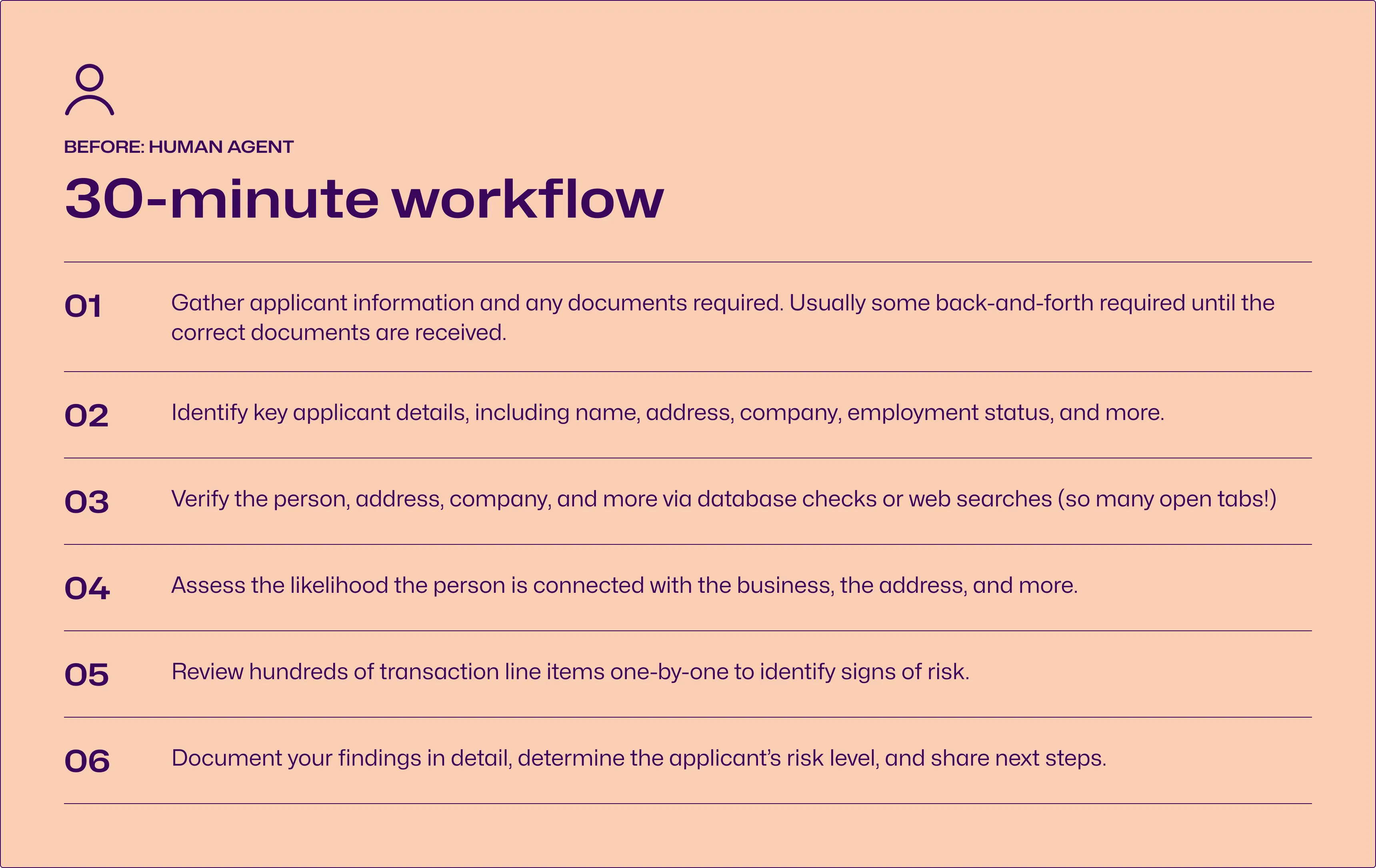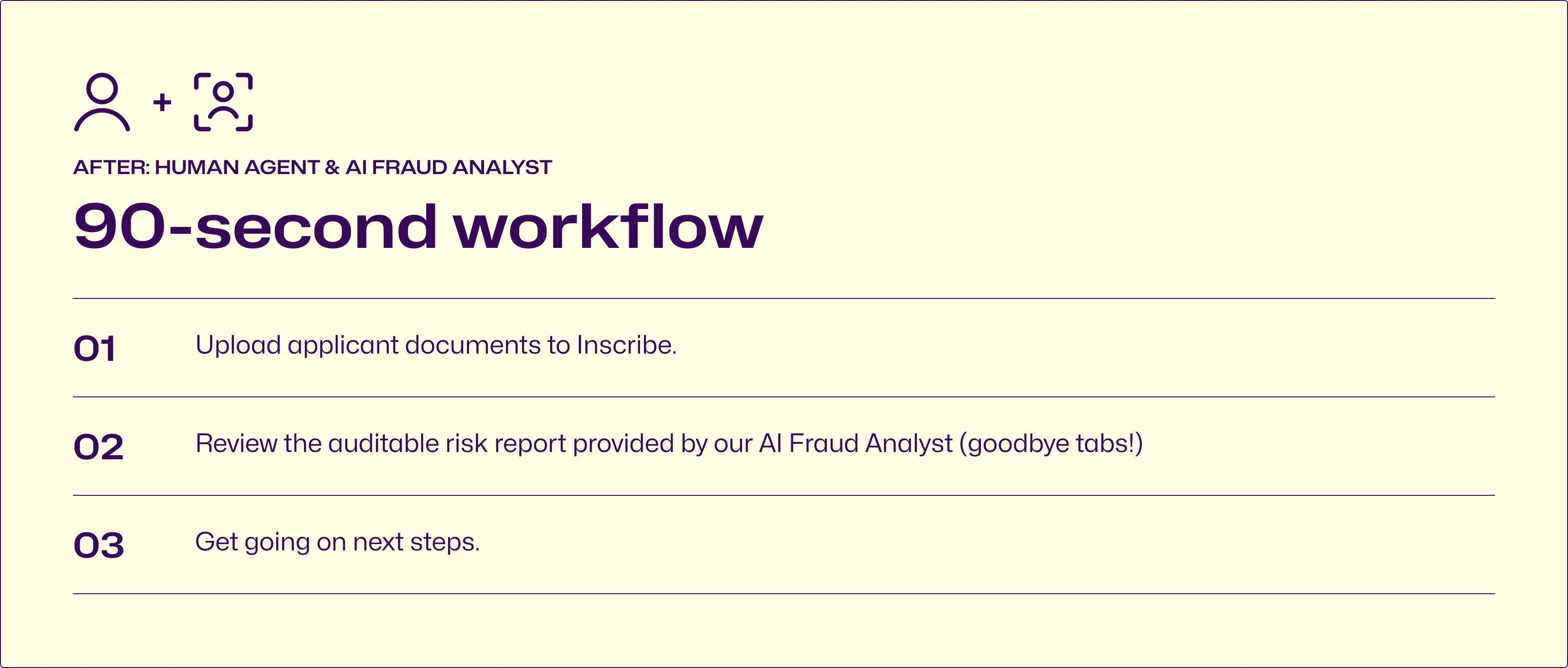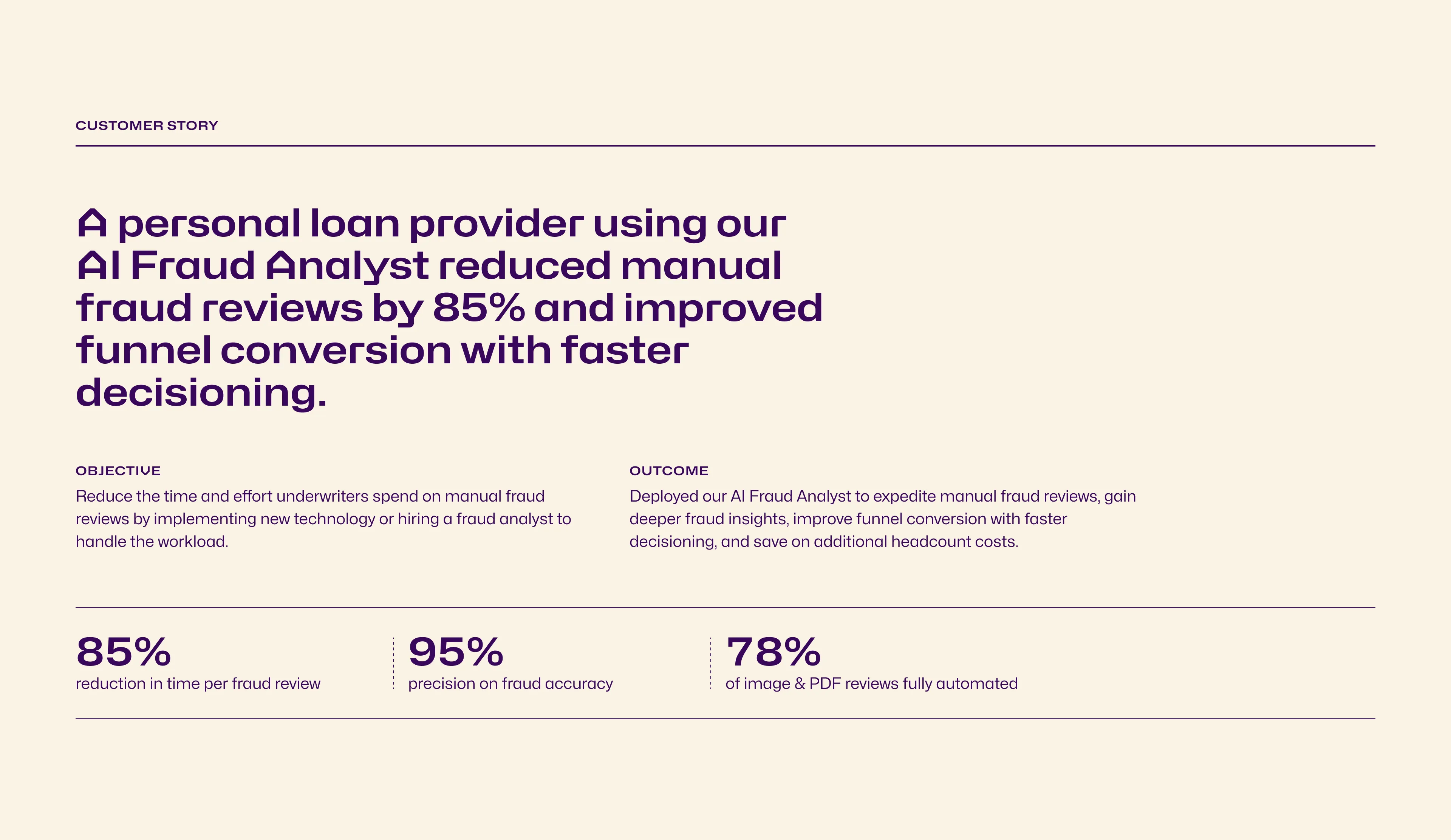Death by 1,000 tabs? Meet our AI Fraud Analyst that summarizes everything in just 1
Table of Contents
[ show ]- Loading table of contents...
Stephanie Spangler
Fraud, risk, and ops teams have told us that their analysts always have many — very many, in fact — tabs open to research their applicants. The number can vary greatly, but the common theme is they may need to review as many as 10+ individual sources for a single applicant, requiring at least 30 minutes of manual review. What if they accidentally close one tab, or worse, the entire browser!?!
And, while most of them don’t actually have 1,000 tabs open, they have more than the average (which is between 5 - 10, according to PC World).
So, how many tabs does the average analyst have open? Here’s what ChatGPT had to say:
The number of browser tabs a typical fraud analyst might have open when researching an applicant can vary greatly depending on the complexity of the case and the tools they are using. However, it's common for fraud analysts to have multiple tabs open at once, often ranging from 10 to 20 tabs. These tabs might include:
- Internal databases or fraud detection tools
- Social media profiles or public records
- Email and communication platforms
- News articles or search engine results
- Industry-specific research tools or forums
- Document verification tools
In some cases, the number could be higher, especially if the analyst is dealing with a complex case that requires cross-referencing multiple sources of information.
That’s consistent with what we hear at Inscribe. So we did something about the need for all that tedious, manual research – we introduced our newest autonomous Agent, an AI Fraud Analyst, not specifically to reduce the number of tabs, but to reduce the need to conduct research via multiple sources when reviewing applicant documents and data during onboarding and underwriting.
In case you missed our previous announcement about Inscribe building AI Agents to perform routine tasks for onboarding and underwriting, you can learn more from our Co-Founder & CEO, Ronan Burke, here. You can also learn more about why fraud fighters are turning to LLMs deployed as AI Agents by listening to our new podcast, Good Question!
But more on our newest AI Agent…
Introducing our newest AI Agent: AI Fraud Analyst
Our AI Fraud Analyst automates manual fraud reviews so analysts can spend less time on in-depth fraud investigations and more time converting trustworthy customers. This means we’re essentially reducing the number of tabs your team needs from 10 to 20, down to 1!
These are the steps an analyst typically takes during document reviews for onboarding or underwriting:

However, using our AI Fraud Analyst, your team can reduce their manual document reviews from 30 minutes to just 90 seconds:

Here's how it works:
Detects fraud in images and PDFs
You may already know that Inscribe uses best-in-class fraud detection models to detect fraud in both images and PDFs. But our AI Fraud Analyst takes it a step further by analyzing any fraud found for false positives. It ranks signals from low to high severity and examines fraud in the context of where in the document it was found.
Verifies individuals and businesses
Our AI Fraud Analyst verifies the legitimacy of your applicants by conducting KYC and KYB checks, including proof of address, proof of employment, company verification, and much more. Links to researched data sources are also provided so you can quickly validate any risk insights uncovered.
Uncovers risky transactions
Say goodbye to tedious transaction reviews. Our AI Fraud Analyst identifies risky activity within bank transactions, including account takeover, friendly fraud, first- and third-party fraud, loan stacking, and other risks. It also uses Benford's Law, combined with AI and our data, to detect unusual digit frequencies that deviate from expected patterns. Learn more about Benford’s Law from Martina Pugliese, PhD, one of our Senior Research Scientists.
Checks for adverse media
Our AI Fraud Analyst searches for adverse content about the business under review in articles, online review sites, and other web pages. The Analyst then interprets the content found based on keywords or topics uncovered.
Validates pay across documents
Have multiple tabs open for multiple docs? No longer! Our AI Fraud Analyst analyzes all of a customer's documents, including cross-checking all the data in a pay stub (including various distributions into accounts like checking and savings, pay periods, bonuses, and rates) with bank statement deposits.
Writes auditable risk reports – everything in one tab!
Finally, and most importantly, our AI Fraud Analyst provides an auditable summary report with a holistic risk-level rating, details about the research conducted, and any risks found — all in 90 seconds. The Analyst provides reports at the customer and document levels.
If you want to dig deeper, check out this interactive tour, where you can click around and see our AI Fraud Analyst in action:
Not only can our AI Fraud Analyst reduce manual review times, but it also improves funnel conversion
Because our AI Fraud Analyst can read, write, and reason like a human, customers are using it to reduce the time spent on each fraud review, helping them convert customers faster. Here's some of the ROI customers are seeing:

Ready to help your team fight fraud (and tab overload)? Reach out to book a demo and speak with an AI expert from our team.
About the author
Stephanie Spangler is the Head of Product Marketing at Inscribe, where she leads efforts to promote AI-driven solutions for banks, fintechs, and lenders. Stephanie is a seasoned product marketing leader with over 15 years of experience in driving go-to-market strategies for B2B software companies. As a three-time founding Product Marketer, she has successfully launched and scaled products in competitive markets. With experience as a product marketing consultant and previous leadership roles at Sendoso and Sage, Stephanie is known for her expertise in market analysis, customer insights, and strategic product positioning.
What will our AI Agents find in your documents?
Start your free trial to catch more fraud, faster.






